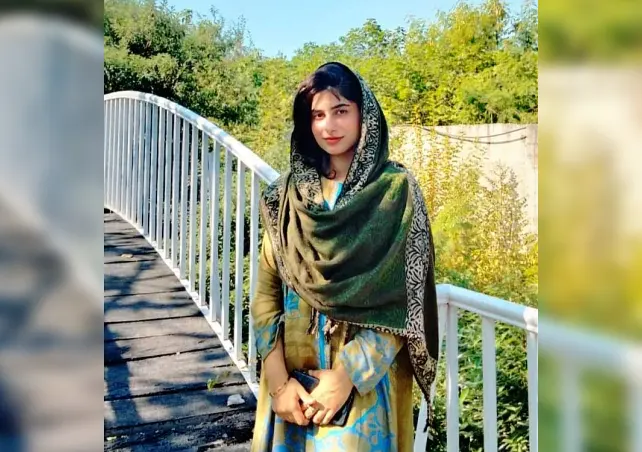Amara Malik
Any person, regardless of colour, religion, gender, nationality, or any other status, is entitled to some fundamental rights known as human rights. They are predicated on the ideas of justice for all, equality, and dignity. On December 10, 1948, the United States General Assembly enacted the historic Universal Declaration of Human Rights (UDHR), which serves as a benchmark for accomplishment for all peoples and all states. More than seventy human rights treaties have been adopted as a result of it, which for the first time lays out fundamental human rights that should be universally safeguarded.
The United Nations top human rights representative, the High Commissioner for Human Rights, is celebrating both the 75th anniversary of the UDHR and its founding. All of the Office of the High Commissioner for Human Rights’ (OHCHR) initiatives, which aim to advance and defend the rights of people that are outlined in the UDHR and protected by international law, are under the purview of the High Commissioner. Volker Türk of Austria is the current High Commissioner; he began serving in this capacity on October 17, 2022. “Consolidating and sustaining human rights culture into the future” is this year’s memorial topic. It seeks to draw attention to the successes and difficulties faced by the human rights movement during the last 70 years and to reiterate the dedication and accountability of all parties involved in defending and defending human rights for all people, everywhere, and at all times. In order to confront the new and ongoing challenges to human rights—such as the COVID-19 pandemic, climate change, poverty, inequality, discrimination, violence, and conflicts—collective action is also required.
The situation in Indian illegally occupied Jammu and Kashmir (IIOJK), where the people have been subjected to harsh tyranny, persecution, and violation by the Indian security forces for over seven decades, is one of the most critical and serious human rights issues in the world today. The situation has drastically deteriorated since India unilaterally and illegally revoked the territory’s special status on August 5, 2019, resulting in a complete lockdown, a communication blackout, arbitrary arrests, torture, extrajudicial killings, enforced disappearances, sexual violence, and demographic changes.
Moreover, numerous draconian laws that provide the Indian security forces with impunity and shield them from responsibility and justice also govern their operations. Using pellet guns and live fire, they have murdered and maimed thousands of civilians, including children and the elderly, and executed hundreds of captives. They have also caused the disappearance of thousands of individuals and sexually assaulted innumerable women. In the latest act of state terrorism in Indian Illegally Occupied Jammu and Kashmir (IIOJK), Indian forces killed a young Kashmiri man in Srinagar in November, 2023. The Central Reserve Police Force car at the Baghat Chowk purposefully struck young Manzoor Ahmad’s bike, resulting in his martyrdom, according to Kashmir Media Service. Furthermore, along with restricting the Kashmiri people’s freedom of expression, assembly, association, and mobility, they have also intimidated and persecuted journalists and human rights advocates who uncover the truth and stand up for their rights.
In order to put an end to India’s war crimes and atrocities in IIOJK, the international community—especially the United Nations—has a moral and legal duty to step in. The UN Security Council, which has held many discussions on the Kashmir problem, needs to act decisively and decisively in order to carry out its own resolutions, which demand a plebiscite to ascertain the desires and goals of the Kashmiri people. The UN Human Rights Council needs to form a commission of inquiry to look into, document, and prosecute those who violated human rights in IIOJK. The council has already released two reports on the subject. Using its authority and clout, the UN High Commissioner for Human Rights—who has voiced concerns about the state of human rights in IIOJK—must exert pressure on India to halt its illegitimate occupation and uphold the rights of the Kashmiri people.
Not only are human rights at stake in the resolution of the Kashmir dispute, but also South Asian and global peace and security. Given that both India and Pakistan are nuclear-armed nations and have fought many wars over Kashmir, there is still a significant chance of further escalation and conflict. After decades of fighting for their right to self-determination, the Kashmiri people deserve a just and peaceful resolution that takes into account their goals and ambitions. In IIOJK, the international community has to take swift, decisive action to avert both a humanitarian crisis and a regional catastrophe.
Therefore, the Human Rights Movement’s successes and setbacks can be considered, and we can reaffirm our shared commitment to protecting and defending human rights for everyone on the occasion of the UDHR’s 75th anniversary and the High Commissioner for Human Rights’ 30th anniversary. The culture of human rights that we hope to uphold and strengthen in the future must be founded on the principles of justice, equality, and dignity for all people. It also has to address the structural issues and underlying causes of human rights violations. The state of human rights in IIOJK serves as a litmus test for the legitimacy and efficacy of the global human rights framework as well as a call to action and accountability for the international community. The people of Kashmir have endured enough suffering and deserve a brighter future; therefore, we cannot let them down.
[The writer is pursuing her degree of IR from NDU and is an intern at KIIR]










